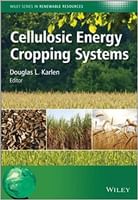- Undergraduate
Bachelor's Degrees
Bachelor of ArtsBachelor of EngineeringDual-Degree ProgramUndergraduate AdmissionsUndergraduate Experience
- Graduate
Graduate Experience
- Research
- Entrepreneurship
- Community
- About
-
Search
Research Interests
Biomass conversion; sustainable energy and development; process design and evaluation; integrated food and energy systems; life cycle assessment
Education
- BS, Chemical Engineering, Cornell University 1990
- MA, Liberal Studies, Dartmouth 1994
- PhD, Engineering Sciences, Dartmouth 2001
Awards
- Excellence in Teaching Award, Thayer School of Engineering 2015
- Link Energy Fellowship 1997–1999
Professional Activities
- Editorial board member, Energies
- Editorial board member, Biofuels, Bioproducts & Biorefining
- Associate editor, Biotechnology for Biofuels
- Reviewer: Bioresource Technology; Biotechnology for Biofuels; Industrial & Engineering Chemistry Research; Biofuels, Bioproducts & Biorefining
Research Projects
-
Lynd Research Lab
Lynd Research Lab
The research lab at Dartmouth led by Professor Lee Lynd is active in research on the following topics:
- Microbial Cellulose Utilization, including fundamental and applied aspects
- Metabolic Engineering, focusing on thermophilic cellulolytic bacteria for fuel production
- Innovative Biomass Processing Technologies, including development, design, and evaluation
- Sustainable Bioenergy Futures, including resource, environment, and economic development
We approach these topics from a diversity of academic disciplines with molecular biology, microbiology, chemical/biochemical engineering providing the foundation for the first three. Consistent with the "Pasteur's Quadrant" model articulated by Donald Stokes (Brookings Institution Press, Washington, DC, 1997), we see advancing applied capability and increased fundamental understanding as having strong potential to be convergent and mutually-reinforcing, and we aspire to work in this mode.
A central theme of the Lynd group is processing cellulosic biomass in a single step without added enzymes. Such "consolidated bioprocessing" (CBP) is a potential breakthrough, and "is widely considered to be the ultimate low-cost configuration for cellulose hydrolysis and fermentation" (joint DOE/USDA Roadmap, 2007). We are focused on production of ethanol, a promising renewable fuel. The CBP strategy is however potentially applicable to a very broad range of fuels and chemicals.
Selected Publications
- Hannon, J., Lynd, L.R., Andrade, O., Benavides, P.T., Beckham, G.T., Biddy, M.J., Brown, N., Chagas, M.F., Davison, B.H., Foust, T., Junqueira, T.L., Laser, M.S., Li, Z., Richard, T., Tao, L., Tuskan, G., Wang, M., Woods, J., Wyman, C.E., 2019. Technoeconomic and life cycle analysis of single-step catalytic conversion of wet ethanol into fungible fuel blendstocks. PNAS, DOI: 10.1073/pnas.1821684116.
- Lynd, L.R., X. Liang, M. Biddy, A. Allee, H. Cai, T. Foust, M.E. Himmel, M.S. Laser, M. Wang, C.E. Wyman, 2017. Cellulosic ethanol: status and innovation. Current Opinion in Biotechnology, 45:202–211.
- Lynd, L.R., M. Sow, A.F.A. Chimphango, L.A.B. Cortez, C.H.B. Cruz, M. Elmissiry, M. Laser, I.A. Mayaki, M.A.F.D. Moraes, L.A.H. Nogueira, G.M. Wolfaardt, J. Woods, W.H. van Zyl, 2015. Bioenergy and African Transformation. Biotechnology for Biofuels, DOI 10.1186/s13068-014-0188-5.
- Gerst, M., M. Cox, K. Locke, M. Laser, A. Kapuscinski, 2014. A Taxonomic Framework for Assessing Governance Challenges and Environmental Effects of Integrated Food-Energy Systems. Environmental Science & Technology, DOI: 10.1021/es504090u.
- Laser, M.S., L.R. Lynd, 2014. Comparative Efficiency and Driving Range of Light- and Heavy-Duty Vehicles Powered with Biomass Energy Stored in Liquid Fuels or Batteries, PNAS, 111(9):3360–3364.
- Laser, M., H. Jin, K. Jayawardhana, L.R. Lynd, 2009. Co-production of Ethanol and Power from Switchgrass. Biofuels, Bioproducts, & Biorefining, 3:195-218.
- Laser, M., H. Jin, K. Jayawardhana, B. Dale, L.R. Lynd, 2009. Projected Mature Technology Scenarios for Conversion of Cellulosic Biomass to Ethanol with Co-production Thermochemical Fuels, Power, and/or Animal Feed Protein. Biofuels, Bioproducts, & Biorefining, 3:231-246.
- Laser, M., E. Larson, B. Dale, M. Wang, N. Greene, L.R. Lynd, 2009. Comparative Analysis of Efficiency, Environmental Impact, and Process Economics for Mature Biomass Refining Scenarios. Biofuels, Bioproducts, & Biorefining, 3:247-270.
- Sokhansanj, S., S. Mani, A. Turhollow, A. Kumar, D. Bransby, L. Lynd, M. Laser, 2009. Large scale production, harvest and transport of switchgrass (Panicum virgatum L.)—current technology and visioning a mature technology. Biofuels, Bioproducts, & Biorefining, 3:124-141.
- Dale, B.E., M.S. Allen, M. Laser, L.R. Lynd, 2009. Protein Feeds Coproduction in Biomass Conversion to Fuels and Chemicals. Biofuels, Bioproducts, & Biorefining, 3:219-230.
- Lynd, L.R., E. Larson, N. Greene, M. Laser, J. Sheehan, B.E. Dale, S. McLaughlin, M. Wang, 2009. The Role of Biomass in America’s Energy Future: Framing the Analysis. Biofuels, Bioproducts, & Biorefining, 3:113-123.
- Lynd, L.R., M.S. Laser, D. Bransby, B.E. Dale, B. Davison, R. Hamilton, M. Himmel, M. Keller, J.D. McMillan, J. Sheehan, C.E. Wyman, 2008. How biotech can transform biofuels. Nature Biotechnology, 26(2):169-172.
Books

Cellulosic Energy Cropping Systems (Chapter 1)
John Wiley & Sons, 2014






